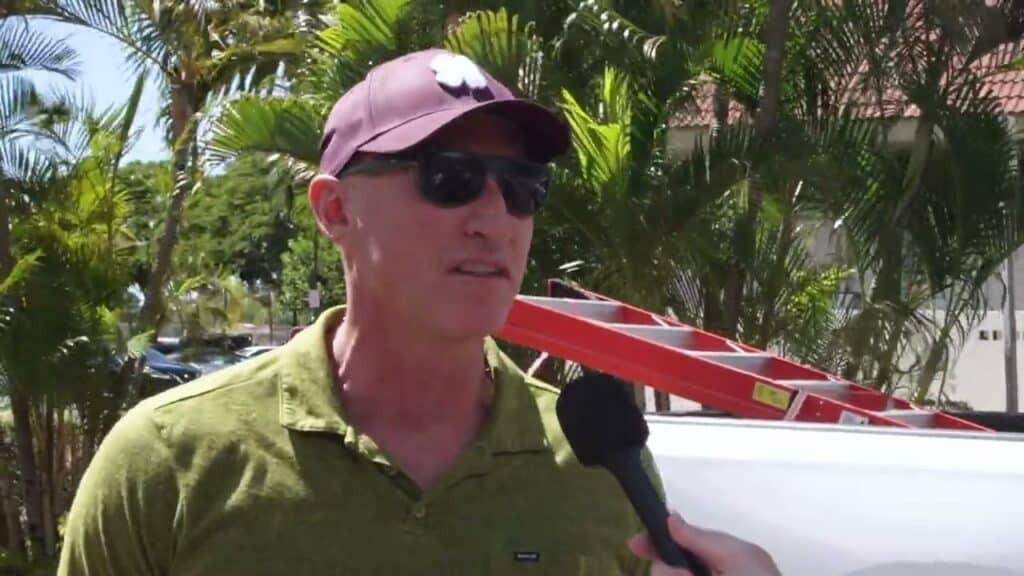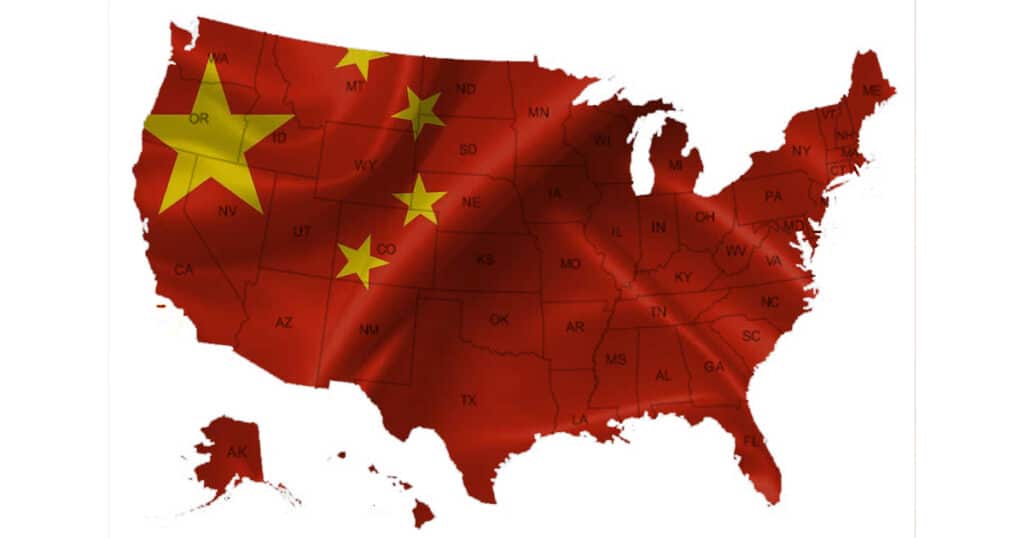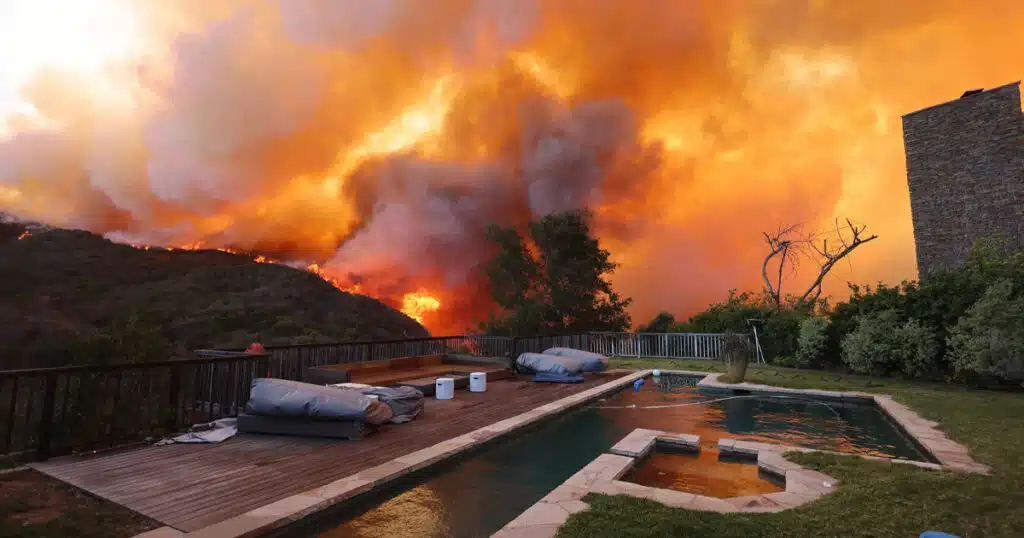
What My Experience Preventing Wildfires in Colorado Taught Me About Maui and Climate Change
The devastating fire that ravaged the Maui community of Lahaina has claimed the lives of over 100 people, and more than 300 remain unaccounted for. Many on the Left—Hawaii’s governor included—have claimed that man-made “climate change” is ultimately responsible for the most deadly fire in a century, but I know from personal experience that factors on the ground, more than some nebulous global trend, are far more important when it comes to preventing wildfires from spreading.
I grew up in rural Colorado during years of drought, and my father is a volunteer fireman. Every summer, I spent hours upon hours clearing out the forest around our mountain home, cutting the grass, raking the shrubs, and bagging the detritus of the forest floor that would burn to a crisp in moments.
Our house stood on the mountain slope, with slightly more than 3 acres of land around us. We managed the 50 yards of grass and shrubs on the slope directly beneath the house—my dad used a chainsaw to hack off the trees’ low-hanging branches—because a wildfire in that area would rise almost immediately to the wooden beams of our home, putting our lives and all our possessions at risk.
My father knew what he was doing. He spent decades as a wildland fire volunteer on the Coal Creek Canyon Fire Department. He would rush to the scene of a fire, entering derailed train cars to pull victims to safety. He performed vital first aid to save lives in dangerous situations, and he loved to take the fire trucks out on solid ice for training.
Human beings have little control when a wildfire starts, but diligent forest management can slow or stop the spread of deadly infernos. Controlled burns help preserve the forest and clear the forest floor of bone-dry materials that fuel a less predictable blaze. Diligent logging practices also help to limit the amount of combustible material.
My father, brother, and I engaged in the most work-intensive form of forest management because there was no better option to preserve our home. We weren’t going to launch a controlled burn within feet of our home.
Many factors combined to make the Maui wildfires the deadliest blaze in a century. The Aloha State has experienced drought since May, Hurricane Dora fanned the flames with 45 mph winds, and downed power lines increased the risk of fire. On the fuel side, non-native invasive grasses that grow fast and burn easily gave the fire a highway to spread across the island. The U.S. Department of Agriculture pointed to 18 grass species that put the island at increased risk of wildland fires.
Climate activists and Chicken Little alarmists don’t like to admit it, but productive industries often help slow the spread of flammable grasses. As Elise McCue wrote for The Daily Signal, the disappearance of Hawaii’s sugar cane and other agriculture industries has enabled these grasses to spread.
The wildland fire threat was not news to local officials. The Hawaii Wildfire Management Organization crafted a wildfire protection plan for the area back in 2014, warning that Lahaina faced a high likelihood of destructive fire due to its proximity to dry grasslands, steep terrain, and frequent winds. According to The Wall Street Journal, the plan presented clear measures to protect Lahaina from fire, including “thinning vegetation near populated areas, improving wildlife-response capabilities, and working with landowners and utilities to help reduce fire risk on their property.”
Those recommendations sound very familiar to me. After all, I spent my summers “thinning vegetation near populated areas,” and my Eagle Scout project involved wildland fire mitigation around a combustible public utility.
Yet local officials never implemented the Hawaii Wildfire Management Organization’s plan.
Indeed, it seems plausible that climate alarmism actually contributed to the risk of wildfires.
In 2019, Hawaiian Electric identified an urgent need to upgrade its infrastructure and manage vegetation to reduce the possibility that its equipment could spark a fire. It proposed spending $190 million to do so last June.
State regulators bogged down the proposal in red tape and reviews, however. The utility said it would not begin the work until it had negotiated a deal with the state to recover the costs from ratepayers, a kind of deal that is typical for utility companies, The Wall Street Journal reported.
While the fire mitigation proposal lingered, Hawaii made a commitment to reach 100% green energy generation by 2015. Hawaiian Electric invested a great deal of cash into green technologies while spending less than $245,000 on wildfire projects between 2019 and 2022.
Although it stands to reason that the mass burning of fossil fuels may impact the global environment, the true factors driving earth’s constant climate alterations remain inscrutable.
Climate alarmists love to cite a statistic that 97% of climate scientists adopt the narrative that human interventions in the environment are spurring us along to the end of the world.
Yet that 97% claim is patently false. It traces back to a study led by John Cook entitled “Quantifying the consensus on anthropogenic global warming in the scientific literature” and published in the journal Environmental Research Letters in 2013.
The study analyzed all published peer-reviewed academic research papers from 1991 to 2011 that used the terms “global warming” or “global climate change.” The study organized these papers into seven categories, combining three categories to come up with 3,896 papers, and comparing those with other categories, which made up 118 papers. Yet the study completely discounted the vast majority of the papers it analyzed (66.4%, or 7,930 of the 11,944 papers). Only by excluding these papers did the authors come up with a 97% figure.
Many of the scientists who wrote the original papers Cook’s team analyzed complained that this study mischaracterized their research. The survey “included 10 of my 122 eligible papers. 5/10 were rated incorrectly. 4/5 were rated as endorse rather than neutral,” complained Richard Tol, professor of the economics of climate change at Vrije Universiteit in Amsterdam.
Contrary to the popular narrative, the science on climate change is far from settled, and much of how the global climate works remains poorly understood.
Wildland fire mitigation is far less sexy than new “green” technologies hawked as the only solution to man-made Armageddon. I know—I spent countless hours doing the unrewarding grunt work. But if you want to save your home and your family from deadly wildfires in a drought-stricken area, there is no substitute for hard work.



